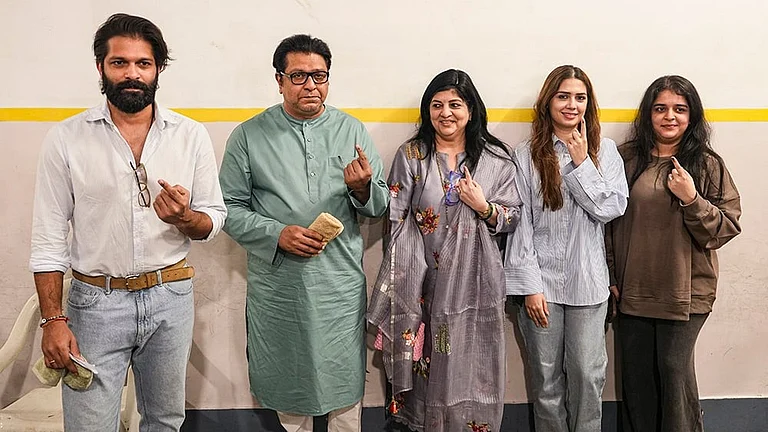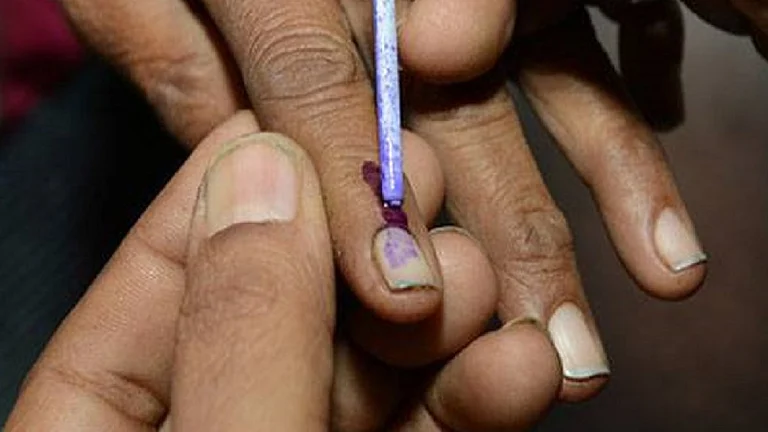Political leaders are trying to understand the reasons behind the low voter turnout in Srinagar during the 2024 elections, especially given the absence of a separatist boycott. Many believe it is time to break the electoral ice for the Sri Nagar voters.
Jammu and Kashmir’s Chief Electoral Officer (CEO) P.K. Pole reported that preliminary figures indicate a turnout of over 56 per cent in the second phase of the Assembly elections. This represents a 7 per cent decrease compared to the turnout recorded during the first phase of elections held on September 18.
In the eight constituencies of Srinagar, the voting percentages remained low with Central-Shalteng recording 29.09 per cent, Chanapora 26.95 per cent, Eidgah 34.65 per cent, Habba Kadal 18.80 per cent, Hazratbal 30.66 per cent, Khanyar 24.00 per cent, Lal Chowk 30.44 per cent, and Zadibal 28.36 per cent.
In contrast, longer queues were observed in Budgam district, where Beerwah registered 62.50 per cent, Budgam 47.18 per cent, Chadoora 54.16 per cent, Charar-e-Shareef 66 per cent, and Khansahib 67.70 per cent. Ganderbal district also performed well with a turnout of 53.44 per cent, while Kangan (ST) achieved a turnout of 67.60 per cent.
Omar Abdullah, the vice president of the National Conference (NC), said that he was expecting a slightly higher turnout. “I expected a higher turnout. There was no boycott, no attacks, and voters were not threatened, but I believe the Central government is responsible for this situation,” he said. He said the Central government's discourse was that a high turnout suggests that people are accepting the decision to revoke Article 370. "Perhaps this got a reaction in Srinagar and the people in Srinagar didn’t want to send a wrong message or wrong signal.”
Abdullah said that the Central government made another misstep by bringing foreign diplomats to Srinagar to monitor polls. “With foreign diplomats visiting and monitoring elections, the government wanted to showcase that Srinagar has changed. Srinagar didn’t want to portray itself in such a way, hence the low voter turnout.”
“I believe that the excitement surrounding the parliamentary elections overshadowed the assembly elections. We expected a higher turnout, but it will take time for people to recognise the value of their votes in Srinagar,” Tanveer Sadiq, who is National Conference candidate from Zadibal constituency and political advisor to Omar Abdullah, said.
“In cities like Mumbai and Delhi, when turnoupolling booth
t is around 50 per cent, in the same, turnout in Srinagar remains low. But I believe a large section who didn’t vote this time will come to understand the importance of voting in coming years and Srinagar will see better participation,” he said. He said the political parties ran strong campaigns, but there’s still work to be done in raising awareness about voting.
However, senior leader of the PDP Waheed Parra said the excitement is over after the parliamentary elections. “People wanted change, but after electing three MPs, they realised nothing has changed.” “This is about employment of three people, not empowerment. Tangible political steps, like release political prisoners were not taken after people participated leading to disillusionment,” he added.
Political analysts say in other areas, there’s a neck-and-neck race between candidates, but in Srinagar, the opposition is weak and lacks candidates against the National Conference. Political parties have not worked over the years to make battleground Srinagar competitive and it results in low voting. “Make it competitive, people will come out in large numbers,” says a political analyst. “Voter complacency in Srinagar is out of boredom. There is a need for strong candidates to engage the electorate,” he says. Many say it is just a habit developed over the past three decades due to the poll boycott.
Ashraf Mir, who contested from the Amirkadal seat on Apni Party ticket, believes that political leaders in Srinagar have failed to deliver for the constituencies over the years. “We haven’t given the people what they deserve. They’re burdened by high taxes and inadequate facilities. In places like Lal Chowk and surrounding area, voters are eager to participate but there is no engagement with them to lift them economically,” he said.
Mir, who previously defeated Omar Abdullah in the 2014 elections while running on a PDP ticket, said there is need for political leaders to focus on Srinagar.
“I campaigned door to door, and many people expressed their frustrations about unemployment, a lack of support for women, and high power tariffs. If you compare the city with any district, many areas in the city are most backward in terms of lack of amnesties, there is poverty and there is general disillusionment with politicians who indulge in benefitting their own rather than people,” he says.
“Srinagar has seen successive regimes, yet nothing substantial has been done. Tell me how many playgrounds are in the city. Even when I was a minister, I know there is not much focus on the city. The political engagement in Srinagar has not addressed the real needs of the people,” he said. Besides, he said, there is nothing disempowering than not voting and political leaders must engage with people to make them realize it. “Because Srinagar deserves better leaders to help the economic needs of people,” Mir said. “Srinagar needs an economic package to address its core issues of unemployment and massive housing crises,” he added.




























